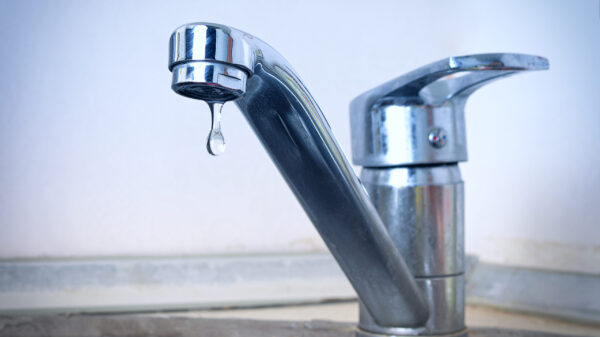Alabama could surpass the state’s all-time COVID-19 hospitalization high in a matter of days, and talks are underway for federal medical teams to assist in state hospitals, which are seeing a surge in COVID-19 hospitalizations.
“We’re in a very difficult position right now,” said State Health Officer Dr. Scott Harris, speaking to reporters on Thursday, noting that Alabama’s ICUs were at 95 percent capacity.
Harris said he expects Alabama will surpass the state’s all-time COVID hospitalization high, which was 3,084 on Jan. 11, within the next three or so days. There were 2,441 COVID-19 hospitalizations statewide on Thursday, which is nearly three times as many as were hospitalized three weeks ago.
{{CODE1}}
“We have a positivity rate of over 24 percent. We lead the country in that unfortunate statistic,” Harris said. “We have some counties in the state now that have more than 40 percent of all their tests returning as positive.”
{{CODE2}}
Alabama remains the least fully vaccinated state in the nation, at 35 percent, according to the Centers for Disease Control and Prevention.
“We are encouraging masking for anyone vaccinated or not in indoor public spaces, as well as our recommendation for universal masking in K-12 schools,” Harris said.
Children’s of Alabama in Birmingham on Thursday was treating 22 children with COVID-19, five of whom were on ventilators, the hospital said in a statement. The hospital’s previous high for pediatric COVID-19 hospitalizations was 12 in January, during the state’s winter surge.
“This marked increase is due to the community spread of the Delta variant that is impacting younger people, including children,” the hospital said. “The threat to Alabamians is serious. There are three proven ways to slow the spread of this highly transmissible strain of the virus: vaccination for everyone 12 and up, masking, especially when indoors, and social distancing.”
Asked about whether Alabama could have to call on help from federal medical teams to assist in the state’s overburdened hospitals, as is being done in Louisiana and Mississippi, Harris said Alabama hasn’t made a formal request for those federal medical teams, but that he’s had numerous calls and a long visit on Wednesday with those federal officials about the possibility of doing so.
“We’re trying to figure out how that would work, but I do think that’s a real possibility for us,” Harris said.
Alabama schools have been opening this week and last, and already hundreds of students and teachers have been sent home due to testing positive for COVID-19. The state has no mask mandate for the public or in schools, and several systems that at first declined to order masking are now requiring students and staff to mask up.
“We have already had to send home several hundred students and several dozen teachers who were COVID positive,” said Alabama State Superintendent Eric Mackey, giving an update during the Alabama Board of Education’s meeting on Thursday. “None of whom got it at school, because they’re going home in the first day or two, but they came to school positive.”
Modeling projections by Suzanne Judd, a professor and epidemiologist in the UAB School of Public Health, predicts that Alabama could — if it follows what’s happened in southern Alabama — see 13,000 cases daily and between 7,800 and 8,000 hospitalizations within two weeks.
{{CODE3}}
“If we get into that circumstance, the hospitals in Alabama are not prepared,” said Dr. Sarah Nafziger, vice president of UAB’s Hospital Clinical Services.
Alabama’s COVID-19 cases and hospitalizations are currently tracking in the middle of Judd’s modeling for southern Alabama and for India’s more moderate case and hospitalization growth from three months ago, where the delta variant was first discovered.
Judd said there’s a concern, however, that the COVID-19 surge in Alabama could shoot northward with K-12 schools and colleges reopening.
“People are going to be getting together with other folks that are not in their social circle, so we anticipate that cases will start climbing again,” Judd said.
“We are in a dire circumstance right now, and it’s time for people to really take this seriously,” Nafziger said. The surge in COVID-19 patients is already putting a strain on UAB Hospital’s ability to care for other patients.
Beginning next week, UAB will only be able to perform a little over half of the normal surgical cases the hospital normally performs, due to a lack of healthcare resources, Nafziger said.
“Not only have we had to limit the number of procedures that we’re scheduling, but we’re also having to decline transfer requests for patients who normally would come to us for care for specialty services,” Nafziger said.
Masks are critical at the moment to help slow the spread of the more contagious delta variant, Nafziger said. Vaccinations are increasing slightly in Alabama, but it will take many weeks for someone who gets their first shot of a two-dose Pfizer or Moderna vaccine before they’ll be fully protected, she explained.
“I know that a lot of people have talked about masking, they talk about vaccines and this has turned into a very political debate, and I’m not here to talk politics with you,’ Nafziger said. “The vaccine is not a member of a political party. COVID is not a respecter of your politics. It will infect anyone. This is not about politics. This is not about your views or biases. This is about science.”




















































